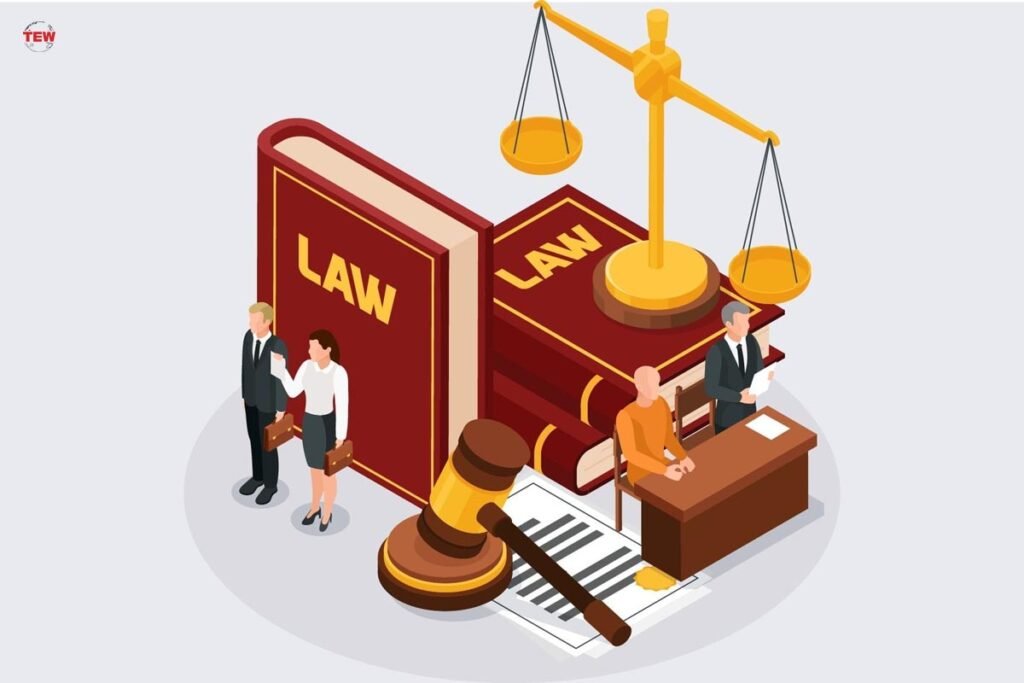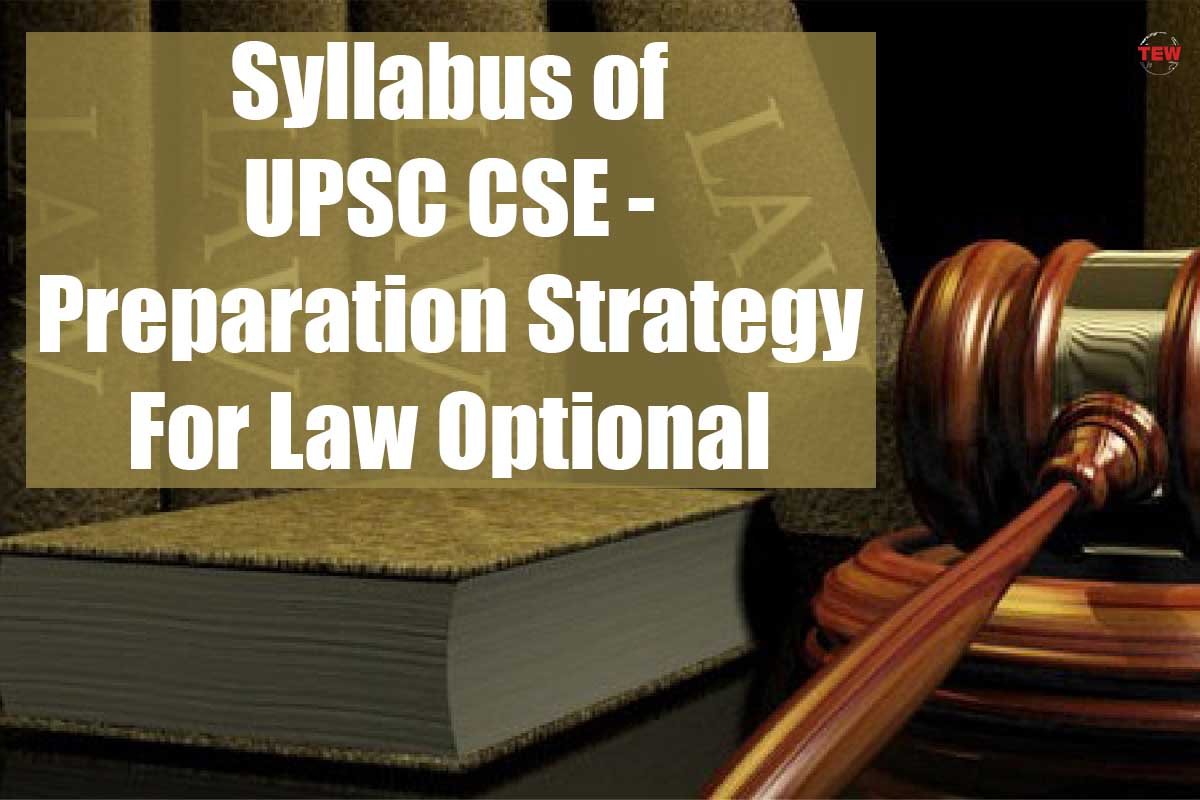The UPSC examination is one of the most prestigious competitive exams in India. The exam is to be conducted in three different stages – Preliminary, Mains, and Interview. In the Mains examination, aspirants must choose an optional subject from a list of subjects provided by Syllabus of UPSC CSE. One of the most popular optional subjects in the syllabus of UPSC CSE is law. So, if you are willing to master the UPSC CSE exam syllabus, we will share the preparation strategy with this post.
| Table of content |
| How aspirants can prepare for the Law optional Understanding the Law Optional Syllabus of UPSC CSE Paper 1 – Indian Constitution, Legal System, and International Law Paper 2 – Crime, Torts, Contracts, and Contemporary Legal Issues Reading the Recommended Books Preparing Notes and Mind Maps Joining Coaching Institutes Practicing Previous Year Question Papers Writing Practice Revision Conclusion FAQs |
How aspirants can prepare for the Law subject ?
Preparing for the law optional can be challenging as it requires a thorough understanding of the subject and its concepts. Thus, below are some points on how aspirants can prepare for the optional law of the Syllabus of UPSC CSE examination.
Understanding the Law Optional Syllabus of UPSC CSE:

The first step towards preparing for the law optional is understanding the syllabus. The law optional syllabusconsists of two papers – Paper 1 and Paper 2. Paper 1 covers the Indian Constitution, Legal System, and International Law. Paper 2 contains topics related to Crime, Torts, Contracts, and Contemporary Legal Issues. The Syllabus of UPSC CSE is large and covers many topics. It is essential to understand the Syllabus of UPSC CSE thoroughly to plan the preparation strategy accordingly.
Paper 1 – Indian Constitution, Legal System, and International Law- Indian Constitution:
The topics covered under Indian Constitution are Historical Background, Salient Features, Preamble, Union and its Territory, Citizenship, Fundamental Rights, Directive Principles of State Policy, Fundamental Duties, Union Executive, Parliament, Judiciary, State Government, Emergency Provisions, Amendments to the Constitution, Basic Structure Doctrine, and Centre-State Relations.
- Legal System:
International Law:
The topics covered under International Law are Sources of International Law, State Recognition and State Succession, Law of Treaties, Jurisdiction of States, United Nations, International Court of Justice, Law of the Sea, International Environmental Law, International Humanitarian Law, International Criminal Law, and International Trade Law.
Paper 2 – Crime, Torts, Contracts, and Contemporary Legal Issues- Crime:
The topics covered under Crime are General Principles, Offences against the Human Body, Offences against Property, Offences against Women and Children, and Cyber Crimes.
Torts: The topics covered under Torts are General Principles, Nuisance, Defamation, Negligence, Strict Liability, and Vicarious Liability.
1. Contemporary Legal Issues:
The topics covered under Contemporary Legal Issues are Public Interest Litigation, the Right to Information, the Protection of Human Rights, Intellectual Property Rights, and the Information Technology Act.
2. Reading the Recommended Books:
The next step towards preparing for the law optional Syllabus of UPSC CSE is to read the recommended books. UPSC recommends certain books for the law optional. Aspirants should read these books to get a better understanding of the subject. Apart from these books, aspirants should also read the latest judgments of the Supreme Court of India and various High Courts. It is essential to stay updated with the latest developments in the legal system.

3. Preparing Notes and Mind Maps:
Aspirants should prepare notes and mind maps after reading the recommended books. Notes help in revising the subject quickly before the exam. Mind maps help in understanding the interconnection between different concepts. Aspirants should make notes in their own words and use keywords to make revising easy.
4. Joining Coaching Institutes:
Candidates often join coaching institutes to prepare for Prelims Syllabus of UPSC CSE but they offer coaching for Mains optional subjects, like law, also. They provide guidance on preparing for the exam and help develop a study plan. They also conduct mock tests and provide feedback to aspirants on their performance. However, aspirants should choose coaching institutes carefully and not solely rely on them for their preparation.
5. Practicing Previous Year Question Papers:
Practicing previous year question papers is one of the most critical steps towards preparing for the law optional. Aspirants should practice solving the previous year’s question papers to get an idea of the type of questions asked in the exam. It also helps in improving time management skills and developing exam-taking strategies.
Writing Practice:
Writing practice is an essential part of preparing for the law optional. Aspirants should practice writing answers to the questions asked in the previous year’s question papers. They can also practice writing essays on legal topics. Writing practice helps in improving writing speed and accuracy. It also helps in developing a structured approach to answering the questions. Aspirants can also take feedback from their teachers or peers on their writing style and make necessary improvements.

Revision:
Revision is one of the most critical parts to succeed in any competitive exam. Aspirants should revise the subject regularly to ensure that they retain the concepts. Revision should be done in a systematic manner. Aspirants should revise the notes and mind maps regularly and practice solving the previous year’s question papers.
Conclusion
Preparing for the law optional of the Syllabus of UPSC CSE examination requires dedication and hard work. Aspirants should understand the syllabus, read the recommended books, prepare notes and mind maps, practice solving previous year’s question papers, and revise regularly. Joining coaching institutes can also be helpful, but it should be done carefully. With the right preparation strategy, aspirants can ace the law optional and achieve their dream of becoming a civil servant, judge, or lawyer.
FAQs
Q.1. Is it necessary to join coaching institutes for preparing for the law optional of the UPSC examination?
Ans. No, it is not necessary to join coaching institutes to prepare for the law optional. However, coaching institutes can be helpful in developing a study plan and providing guidance on how to prepare for the exam.
Q.2. How much time is required to prepare for the law optional of the UPSC examination?
Ans. The time required to prepare for the law optional depends on the aspirant’s understanding of the subject and their preparation strategy. On average, it takes around 6-8 months to prepare for the law optional.
Q.3. What are the career options after clearing the UPSC examination with law optional?
Ans. After clearing the UPSC examination with law optional, aspirants can opt for a career in the civil services, judiciary, or legal profession.





